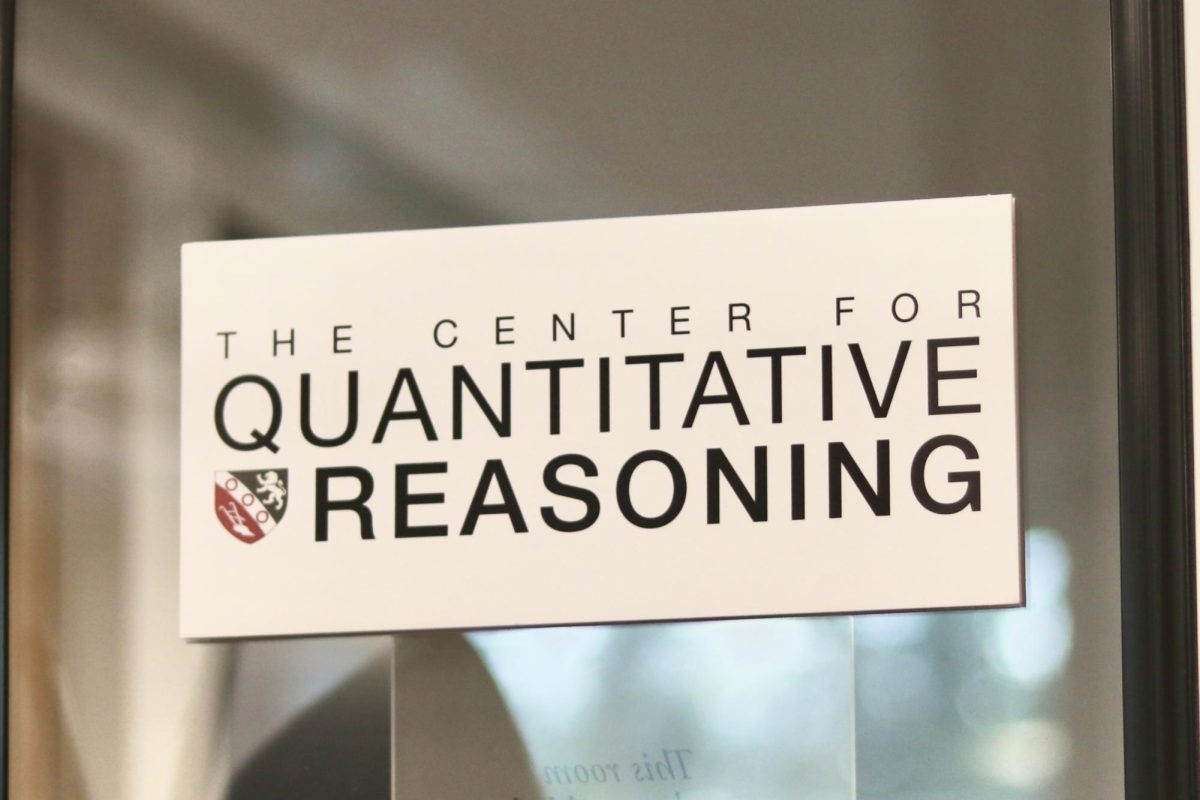Last spring, Ms. Rose Costanzo, the Director of the Center for Quantitative Reasoning (CQR), started a familiar program: peer tutors. Costanzo modeled this CQR program on the peer tutoring program at the Center for Academic Writing (CAW). Having peer tutors allows students to have a familiar face to help them out with their math work as opposed to meeting with their teachers, who may not share the same free period as them. Some students react better to peers in order to learn as they find it less intimidating than working with an adult. Through the CQR peer tutoring program, students have an additional leadership opportunity on campus while also strengthening their own math knowledge. This year, Costanzo aims to grow the program to have a greater impact on student life.
To become a peer tutor for the CAW, students must take a semester course in the fall of their junior year called Writing Center Theory to qualify. CQR peer tutors are not required to take a prerequisite course in order to participate. Instead, during the spring semester, math teachers will be asked to recommend students who they believe will be successful as a peer tutor at the CQR. But it’s not just up to the teachers, for those who would like to participate in this opportunity, they should let their math teacher know early on that they are looking to become a peer tutor. This initial recommendation is followed by an interview, placement test, and two training sessions with Costanzo.
Although having a peer tutor can be a great idea for students to think about having, Costanzo also believes that finding a good balance between meeting with a peer tutor and visiting teachers is the best way to find academic success. “It’s up to the student’s preference and comfort level, but it does sometimes create accountability,” Costanzo said. Another major difference from the peer tutors at the CAW is that in addition to being available during specific drop-in times at the CQR, students can sign up for weekly tutoring sessions. Having someone to meet with every week helps students feel less intimidated when it comes to receiving math help as well as feeling a responsibility to keep up with their work.
CQR tutor Katherine Chandler ‘26 said, “I became a tutor by maintaining strong grades and engaging in various leadership opportunities.” Chandler believes it is inspiring to watch her peers grow throughout their tutoring sessions. “The most important thing about tutoring is one’s ability to keep an open mind, building the connections and confidence needed to not only finish the assignment but serve the student throughout their educational career,” Chandler said. There is a reason why peer tutors decide to tutor students–to support their peers in their academic journey.







